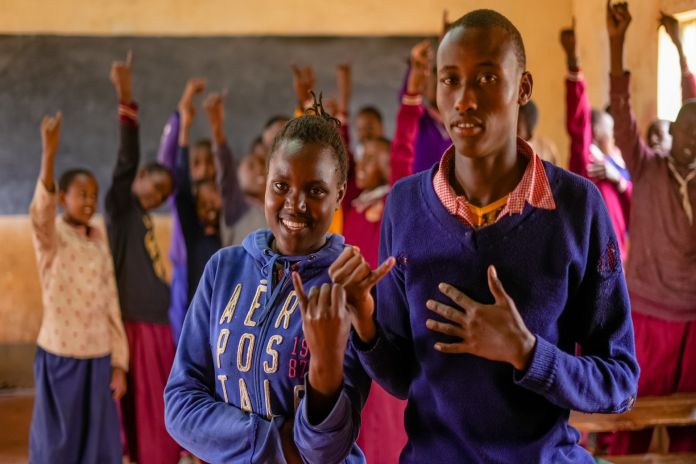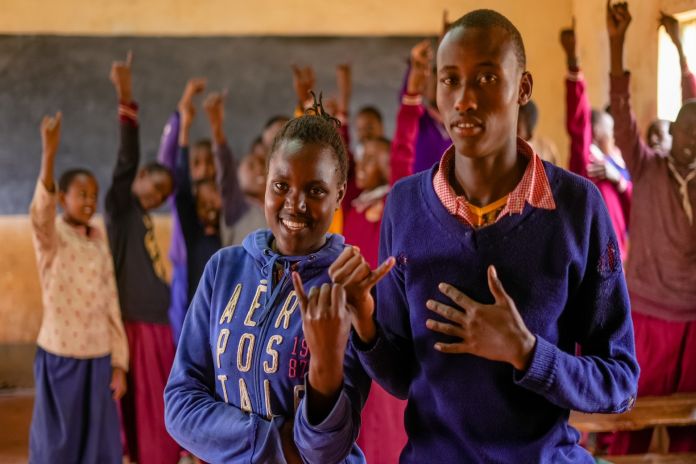WHO: New report maps efforts to improve adolescent health and well-being


GENEVA, Switzerland – The World Health Organization (WHO) released the second edition of its biennial report, “Working for a brighter, healthier future: how WHO improves health and promotes well-being for the world’s adolescents”.
The document captures WHO’s response across the three levels – headquarters, regional and country offices – to meet the multifaceted needs of the estimated 1.3 billion adolescents (aged 10 –19 years) worldwide.
“This report showcases many examples of WHO’s engagement with adolescents to elevate their health and well-being,” said Dr Anshu Banerjee, WHO director for the Department of Maternal, Newborn, Child and Adolescent Health and Ageing. “This is done through collaboration and coordination of new initiatives, developing norms and standards, policy guidance and establishment of ambitious objectives with development partners and stakeholders.”

Key milestones in improving adolescent health
- WHO launched several key initiatives aimed at supporting the engagement of young people and their participation in addressing global health priorities including the establishment of the Youth Council; Briefing Centre; Global Model WHO; Youth Delegate Programme; and the Global Forum for Adolescents and its 1.8 Billion Young People for Change campaign. Regional initiatives such as the Pan American Health Organization (PAHO) Youth for Health Group and the South-East Asian Youth Network also grew stronger.
- WHO released the second edition of the Global Accelerated Action for the Health of Adolescents (AA-HA!), which provides the latest available data on adolescent health and outlines a new list of core indicators for adolescent health measurement. Informed by the AA-HA! guidance, many more governments are investing in comprehensive and evidence-based adolescent health and well-being programmes, developed in close consultation with adolescents and youth.
- WHO developed Policies to protect children from the harmful impact of food marketing, which recommends countries implement comprehensive mandatory policies to protect children from the marketing of foods and non-alcoholic beverages that are high in saturated fatty acids, trans-fatty acids, free sugars and/or salt. It also issued a technical report on Reducing the harm from alcohol by regulating cross-border alcohol marketing, advertising and promotion, highlighting marketing strategies and the importance of controlling or prohibiting alcohol marketing to reduce the harm from alcohol.
- Good nutrition during childhood and adolescence is the basis for many gains in health and well-being. Policy action to improve children and adolescents’ diets is central to addressing obesity. Nudges to promote healthy eating in schools, a WHO policy brief, reviewed evidence on the potential of applying small, subtle changes that affect school-based food choices. The brief proposes five steps for implementation of a nudge approach through the engagement of school stakeholders and provides several case studies with examples.
“These are just a few highlights of our work over the last two years and the report provides further information on all our collective efforts across the organization,” said Dr Banerjee. “It shows how much we can achieve by working together towards a common goal to promote, provide, protect, empower and perform for the health and well-being of adolescents.”
The decade ahead
Adolescents today are healthier than a few decades ago and have more opportunities to develop their full potential. However, the scale and scope of the global threats to their well-being, including conflicts, climate crises and other humanitarian emergencies, all compounded by the COVID-19 pandemic, now put decades of progress at grave risk.
“We are committed to strengthen our culture of partnerships with civil society and young people, the private sector and parliaments in health and other priority sectors,” said Dr Banerjee. “Building on WHO’s initiatives such as the Youth Council and the Civil Society Commission will help accelerate action by focusing on human rights, accountability, and community engagement. It will build stronger mechanisms to engage civil society, community based organizations and youth groups in our work.”
Related links
- A77/A/CONF./3 Social participation for universal health coverage, health and well-being
- A77/A/CONF./3 Add.1 Financial and administrative implications for the Secretariat of resolutions proposed for adoption by the Health Assembly
Source: caribbeannewsglobal.com

